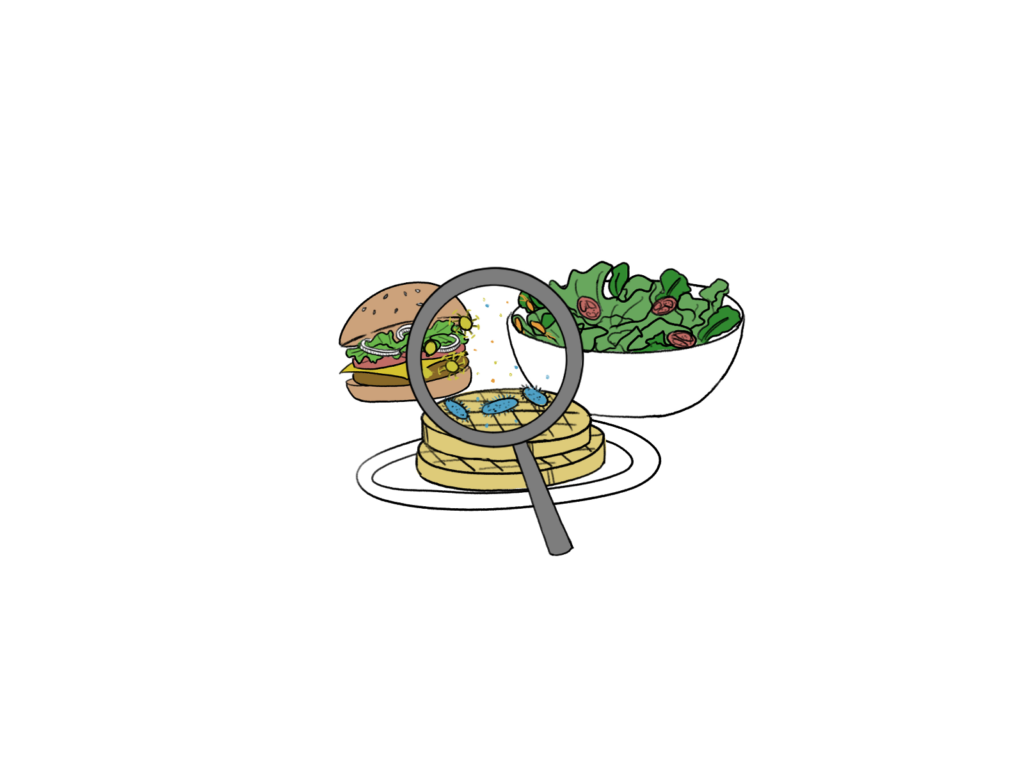
Melody Liu
Since July 2024, there has been a large influx of food recalls due to safety concerns such as Listeria outbreaks or risks of Salmonella. Costco eggs, McDonald’s Quarter Pounders, frozen waffles, green onions, cucumbers and more have all been affected. People who have consumed these products have reported symptoms including fevers, muscle aches, nausea and food poisoning.
Those who have simply heard about the recalls, despite not consuming them personally, may take steps to avoid such foods.
“I saw a TikTok on [it] and people [getting] sick [from the] E. Coli,” said junior Lia Araneta. “I didn’t have [much of] a reaction [but] I told my friends what happened and how we can’t get McDonald’s anymore. If there’s a food recall, [I’ll] purposely avoid the food for probably a month or so [or] until it’s deemed safe.”
Senior George Stubbins had a similar perspective regarding the McDonald’s recall.
“I thought they would have better quality control because they’re such a big brand [but this recall] makes me not want McDonald’s as much,” said senior George Stubbins. “I would [prioritize food safety] even though McDonald’s is really cheap.”
Over the years, however, people have seemingly gotten used to the outbreaks, due to the frequent nature of these food recalls—one such instance being in 2008 when a major Salmonella outbreak caused over 700 to fall ill and 150 to be hospitalized. Despite this, it remains a concern for some.
“I guess I wasn’t surprised, but sad … this idea that some people out there are getting sick … [and] that people have lost their lives because of this,” said Advanced Placement Biology teacher Katherine Ward. “[Hopefully] there [was] no negligence in this, that there wasn’t any mishandling of things or covering up of anything.”
Foods and Nutrition and Culinary Arts teacher Jenna Meyer offered a solution for individuals to promote food safety.
“I would focus on buying food from places where they’re actually doing the cooking in the restaurant rather than getting [it] in mass-produced things from all over the country,” Meyer said. “I just stick to the plan of trying to eat a little bit fresher.”
Some people are also subscribed to websites that send daily emails regarding foods and their safety issues.
“There are websites that you can go to online [including] the [United States Department of Agriculture] and the [Food and Drug Administration],” Ward said. “The US Department of Food Safety and Inspection Services … will tell you what all the food recalls are. It’s not just [a risk on] safety, it also [might be] illegal.”
Dozens of brands continue to issue recalls, with a contaminated product even resulting in a death on Nov. 17.



